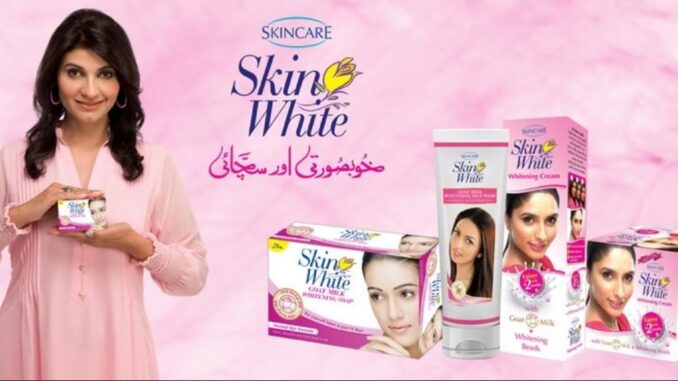
Growing up in Pakistan is an ordeal for a “browner” girl. Society there is obsessed with skin color and the delusion of being “fairer”.
As someone who was born overseas, I have watched amazed over the past two weeks as American society has launched into an intense confrontation with lingering racism. Americans are talking openly about the damage caused by unconscious bias when we see someone’s skin color. We are holding up a mirror to ourselves and passionately pointing out blemishes.
Some of us Pakistanis are correctly insisting that we must ourselves look in the mirror. Our bias about skin color is not unconscious – it’s an open part of our racist attitudes, and we can longer be silent about it. So you can understand how I was moved to discover this a tweet from a fellow Pakistani-American:
Racism in the South Asian communities doesn’t even have to be overt. It’s in the subtleties of the songs that say “Chittiyan kalaiyan ve…” or “Jiski biwi gori…” So maybe the next time we’re tasked with putting together the mehndi playlist, we think twice.
— Hira Raja (@HiraHiraHiraa) June 7, 2020
“Jiski biwi gori…” – “Whoever has a fair wife has a good fortune” goes the famous tune that we all danced to. Pakistani society, let’s be honest, puts whiteness on a high pedestal. Mothers looking for a suitable bride demand a “Rishta” for their sons – a fair bride will bring pride to the family. We have heard the matchmaker’s refrain: “Your daughter is too dark, much too dark – has she tried to get lighter?”
The impossible dream of becoming a white person is a way to keep people perpetually unhappy with themselves. The problem of “Gora skin complexion” hit home when I was just six when my mother and aunt made me stay indoors during the day so my already dark skin wouldn’t get worse. When I insisted on playing with my friends in the sun, they told me: “It is for your own good. No man will want to marry you when if you tan more.”
At 10, the Pears soap in the soap dish was discreetly replaced with a foul blend of turmeric and almond milk skin whitening scrub made by my mother. In college, I started to apply the skin-lightening “Fair & Lovely” cream to my face. My wardrobe changed to darker colors, because pastels and brown together is a fashion disaster.
The white skin fetish had penetrated every aspect of our society. Movies, songs and commercials profit off the insecurities of Pakistanis, reminding us that the only way to be successful is to be fair-skinned. One skin cream commercial showed a retired father complaining to his daughter that she will not be able to lift her family from financial struggles due to her dark skin. So the dutiful daughter applies the Fair & Lovely cream and magically transforms into a super confident individual who lands a job as a stewardess, pleasing her father.
After over a decade of comparisons to fairer women, catty compliments, disguising wardrobe choices, and worried family members, I finally got tired of our hypocritical and irrational fixation with whiteness. I made a break.
Now, here in America, we’re all brown, no matter how many chemicals or soaps we apply to our skin. The brown can’t be scrubbed out (what a relief!) – but our racist attitudes can. Let’s look in the mirror and get to work.
